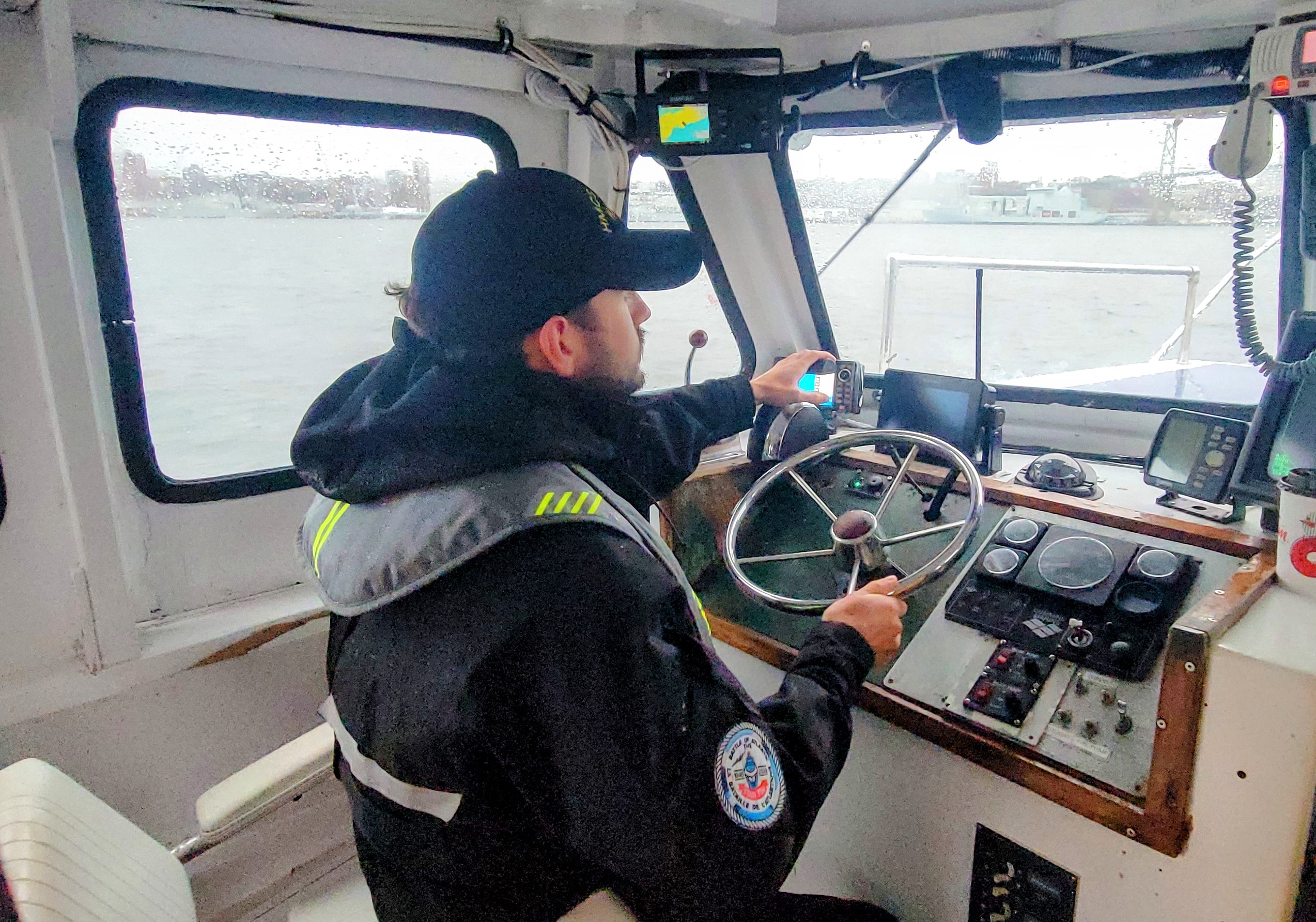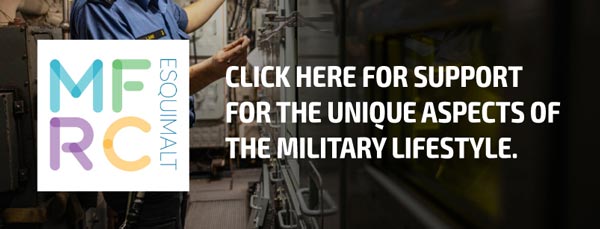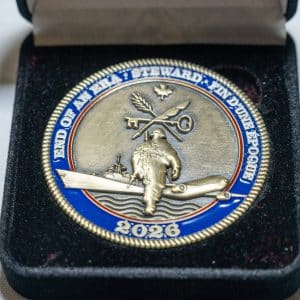
Master Sailor David Murphy at the wheel of a hybrid electric small boat in Halifax Harbour during trials in 2021. RCN Innovation continually explores new ideas and technologies to ensure the Navy is ready to meet the future operating environment.
RCN
—
The Royal Canadian Navy’s (RCN) Innovation team – a small group focused on matching emerging technologies of today with the needs of tomorrow – is ensuring the navy is finding and exploiting state-of-the-art technologies for its future capabilities.
The RCN is in the midst of its largest naval recapitalization program since the Second World War, which includes building new classes of ships and life-extending others, as well as pursuing necessary infrastructure maintenance and upgrades to shore and training facilities.
Preparing for this future fleet isn’t just about building ships. It’s also about future-proofing vessels to ensure that systems stay relevant for years to come, and more importantly, that tomorrow’s sailors have the equipment they need when sent into harm’s way.
“Staying at the frontier of rapidly evolving new technologies is essential to maintain a warfighting advantage,” says Commander (Cdr) Lee Vessey, Director of RCN Innovation. “The capabilities of our future fleet will include some of the novel technologies we’re trialling now.”
The team had a very busy 2021 and continues to have a busy 2022.
For instance, last year, members of the RCN Innovation team joined a group from private industry to test hybrid electric small boats in Halifax Harbour.
“When they switched off the diesel engine, the boat went completely silent, and changing the battery after three hours felt as normal as swapping cans of gas. It’s exciting to get a first look at what could be the future of the navy,” says Master Sailor David Murphy, who participated in the trial.
Later in the year, artificial intelligence capabilities were tested when RCN Innovation hosted a session in which 35 sailors tested advanced maritime domain awareness software. The software analyzes past data and makes predictions on where ships are likely to go next, and why, including factoring in the predicted weather, navigation considerations, and previous behavior.
“For a commanding officer of a ship or submarine, having this additional source of information in your decision-making toolbox during an counter-narcotics operation, for example, would be of great use,” says Lieutenant Commander Andrew Pile, a member of the Innovation team.
Starting this year, the Innovation team, alongside project leads in the Defence Materiel organization, is helping exploit the new “X-fleet” of dedicated innovation and technology testing ships. These civilian ships give RCN sailors the opportunity to have hands-on exposure to experimental technology while not using up an operational ship’s valuable time and resources.
Through RCN Innovation efforts, there are currently 28 prototypes being built by Canadian industry. These prototypes are outside of normal big projects and will be ready for RCN assessment within the year. They include Light Detection and Ranging (LIDAR) remote sensing and machine-learning technology that will assist bridge teams with real-time 3D spatial information.
The Innovation team is excited to see the implementation of a new artificial intelligence (AI) module into the navigation system of the bridge simulators at Venture, the Naval Officers Training Centre located at Maritime Forces Pacific. The AI will have learned collision avoidance – just like human bridge officers at sea – but will be trained using hundreds of thousands of hours and scenarios, giving it the ability to make collision avoidance recommendations in complex and war-fighting environments.
RCN Innovation will also be focused on finding opportunities in the comprehensive Net-Zero by 2050 targets – the Government of Canada’s commitment to avert the worst impacts of climate change by achieving net-zero emissions by 2050 – including possible benefits found in carbon-neutral small boats and the availability of financial grants to assist those initiatives.
“We see electric vehicles on the road with big advantages in reliability, ease of maintenance, acceleration and performance – even quietness that could translate, in military terms, to reduced acoustic signature, making them harder to detect,” says Cdr Vessey. “The marine sector is now starting to convert to this technology and the opportunities to find benefits in our small boat fleet or for anti-submarine warfare capabilities, is significant.”
In 2022, RCN Innovation will continue to seek bottom-up idea generation from across the navy by increasing idea input from every position and rank, providing more training courses, offering sailors more hands-on exposure to state-of-the-art technologies, bespoke training in Design Thinking, and delivering Creative Destruction Labs – a non-profit organization that allows new companies in science and technology to seek experience, advice, and partnerships with industry, academia, and government organizations.
“What the RCN is doing in terms of innovation is ground-breaking,” Cdr Vessey says. “The things we are testing now will be part of the advanced capabilities of our future fleet. There couldn’t be a more exciting time to be part of the navy.”









